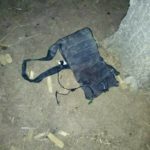The Niger Delta Power Holding Company has raised alarm over a debt of nearly N600 billion owed to it by the Nigerian Bulk Electricity Trading Plc and other private electricity buyers.
The company said the huge debt is seriously affecting its operations and leaving over 2,000 megawatts of power stranded.
In a statement shared with newsmen, the Managing Director of NDPHC, Jennifer Adighije, said the company is facing big challenges, including poor gas supply, limited transmission capacity, and low power demand from distribution companies.
She said, “NDPHC currently has about 2,000 megawatts of power available, but it is stranded because of problems with gas supply and transmission, and because electricity distributors are not taking up enough power.”
Adighije explained that her management team had recently repaired five turbine units at power stations in Calabar, Omotosho, Sapele, and Ihovbor, adding 625 megawatts back into the national grid.
She also lamented that NDPHC power plants are often used by the national grid to stabilise electricity supply without proper payment. “Our plants are asked to start and stop frequently, which causes stress on our machines. Yet, there is no compensation for these services as required by industry rules,” she said.
The managing director also noted that many of the company’s power plants are underused despite being ready to generate power. For example, the Alaoji power plant, with a 500MW capacity, has not generated any power in months due to a gas supply dispute. She said work is ongoing to fix this problem and restart the plant before the end of the year.
She stressed that NDPHC has invested over N500 billion in building and improving Nigeria’s power transmission system, including installing transformers, substations, and new transmission lines.
On solutions, Adighije said NDPHC is now focusing on selling electricity directly to eligible customers and private buyers, based on a new order from the Nigerian Electricity Regulatory Commission issued on July 25, 2023. She said this plan would help the company stop wasting its available power.
“We have more power than the grid needs. So, we are now working to sell directly to private buyers to make sure this electricity does not go to waste,” she said.
Despite NDPHC’s efforts, a recent report by NERC shows that most of its power plants are operating far below their capacity. Ihovbor 2 is the only plant working near full capacity, generating 449MW out of 461MW. Sapele 1, with 720MW capacity, only generated 23MW. Omotosho 2, with 500MW, added only 21MW. Olorunsogo 2, with 750MW, produced 24MW in April and 0MW in March. Omoku plant, with 150MW capacity, generated just 16MW last month. Olorunsogo 1 and Omotosho 1, each with 335MW capacity, ran at 42 percent, generating 141MW and 142MW respectively.











